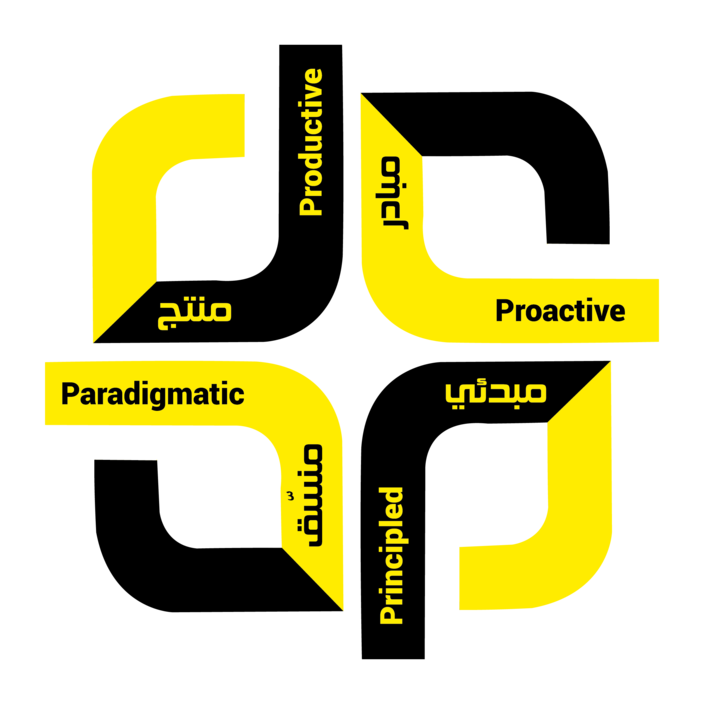Governance
-
Academic Baccalaureate is based in London at the headquarters of Academic Assessment Ltd., and managed and deployed in accordance with a particular charter. The Academic Baccalaureate team of experts and administrators work closely with ERC and benefit from its resources, so as to continuously improve all aspects of the program.
-

Framework
-
The Academic Baccalaureate is based on the Profile Shaping Education (PSE), an educational framework revolving around a profile the students are expected to develop at the end of the twelfth grade. This profile enables students to succeed not only to pass exams but also to succeed in modern life. This profile is based on field research in the domain of cognitive sciences showing that: (a) professionals, especially those in academic communities, share common expert paradigms for knowledge construction and deployment, and (b) there are patterns in the structure of expert paradigms and practice of accomplished professionals in various communities. PSE subsequently calls for education to systematically empower students with profiles that recapitulate such patterns that are more clearly visible in the 4-P profile (Figure 1).
Paradigmatic
A paradigmatic student realizes that knowledge construction and deployment in every profession are governed by certain paradigms in line with which he/she needs to develop his own profile. For efficient transcendence of personal paradigms, the student concentrates on a balanced and comprehensive repertoire of foundational and generic episteme and cross-disciplinary habits of mind that allow him/her to realize the big picture within and across disciplines.
Productive
A productive student relies on systematic ways and means, cognitive and technical, for meaningful development, constructive deployment of conceptions and mental habits within each discipline in everyday life.
Proactive
A proactive student adopts a clear vision of his/her education and future, and develops an affinity for detecting and resolving problems, anticipating new challenges and coping with them. The student continuously seeks and assumes control of new learning experiences in order to evaluate and regulate his/her own profile. He constructively engages with others to help them do the same, and subsequently to empower himself and others for lifelong learning and continuous profile development.
Principled
A principled student embraces positive dispositions, especially those that characterize his own culture and expert paradigms and realizes, respectfully, the importance of constructive interaction with others and with his surrounding environment.
-

Deployment
-
Academic Baccalaureate is a school-based program. Once a public or private school is accredited, all students at that school get enrolled in Academic Baccalaureate, beginning with grade 10 (and eventually KG). Only students at accredited schools can enroll in Academic Baccalaureate.

-
Academic Baccalaureate works within the context of enriching the curriculum and improving the efficiency of their implementation. To this end, Academic Baccalaureate requires the coverage of a set of learning outcomes in each of the following fields:
1- Science: physics, chemistry and biology.
2- Mathematics: algebra, geometry, trigonometry, measurement, calculus, probability and statistics.
3- Languages: Arabic and a foreign language (English or French).
Science and mathematics may be studied and assessed in Arabic, English or French.
-

The Academic Baccalaureate diploma is a secondary school diploma granted based on a student's achievement on various forms of school assessment in grades 10, 11, and 12, including the Academic Baccalaureate comprehensive exam administered in grade 12. The diploma comes with an academic transcript that shows the student’s score in all different types of assessments and provides a comprehensive picture of the profile upon graduation.
The Academic Baccalaureate Diploma is granted on the basis of:
- Continuous assessment in Grade 10 and Grade 11
- Cross-Disciplinary project in Grade 12
- Comprehensive exam in Grade 12
The Academic Baccalaureate Diploma has received equivalence to the British GCE A Level by UK ENIC, the National Agency for the Recognition and Comparison of International Qualifications and Skills. UK ENIC performs this official function on behalf of the UK government. -
Academic Baccalaureate is strict on quality assurance. To this end, all Academic Baccalaureate deployment aspects are continuously monitored, in the spirit of full partnership with school officials, in order to ensure that all Academic Baccalaureate matters are properly implemented and to uphold the credibility of all data and practices, especially in relation to assessment.
-
Partnership is constantly consolidated among participating schools and with Academic Assessment Ltd. in order to provide necessary support for continuous capacity building of various stakeholders. A variety of interaction channels are provided to these ends including the following:
1- Teachers' capacity building program, including continuous professional development programs and regional and local training workshops.
2- Regular regional policy meetings held with local ministry of education officials and other stakeholders to evaluate and continuously improve various aspects of Academic Baccalaureate.
3- Regular Country and School Officers meetings held at national and regional levels to continuously refine Academic Baccalaureate.
4- Academic Baccalaureate help-desk that may be contacted for assistance at any time.
5- Support material, including lesson plans, interactive and extracurricular activities, and items that tackle high order thinking skills and subject interference.
6- Periodic visits to Academic Baccalaureate accredited schools to support the staff in the implementation of the program.
